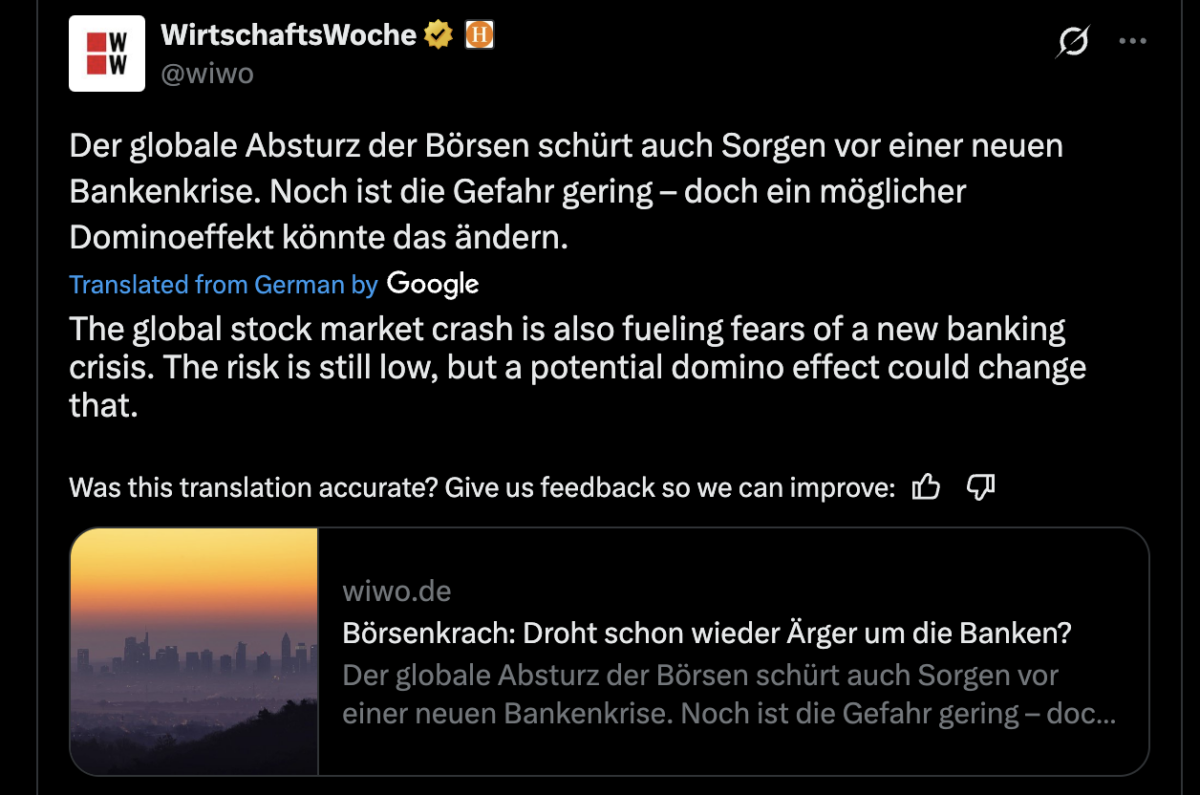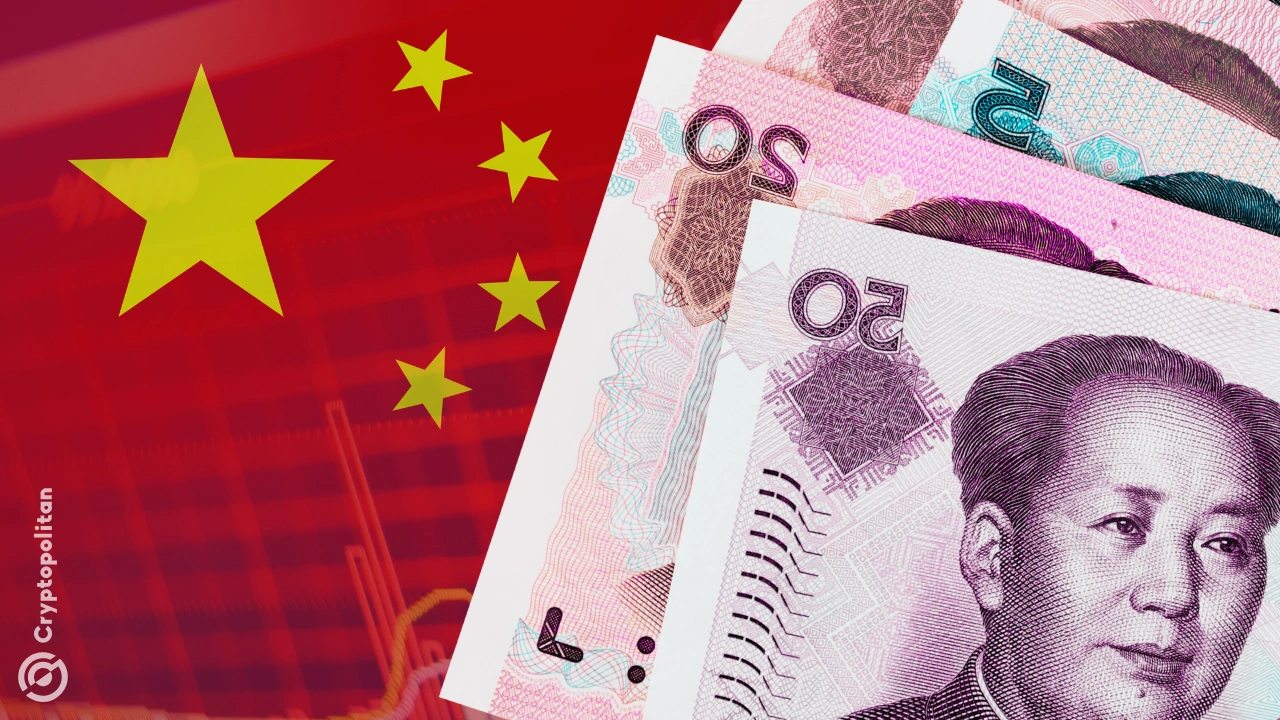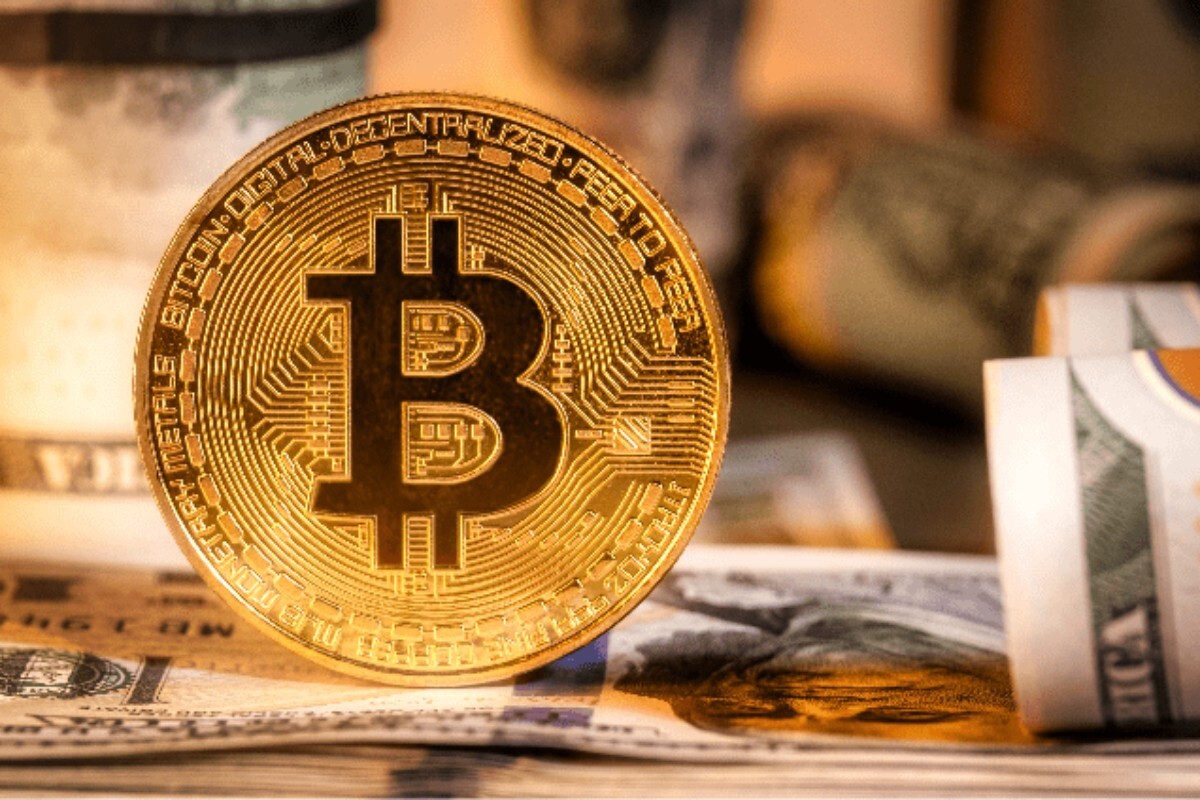With stock markets crashing around the world, sent into a dive by the new U.S. tariffs, shares of major EU banks have declined sharply, bringing back memories of previous crises in banking, finance and economy. Many of those have historically started with falling bank stocks.
Amid Donald Trump’s trade war, leading financial institutions in Europe have registered a significant drop in the prices of their shares during the past week, analysts took note. Some fear that the losses if they continue, may spark the next meltdown in the sector, which had begun to emerge from stagnation not that long ago.
Euro bank shares suffer significant losses
After a decade of poor performance, bank shares in Europe had only recently started to catch up with global stock markets when the current trade war hit. Higher inflation and interest rates, respectively, and profit margins have boosted Euro banks’ profits in the years since COVID-19.
But now their stocks are falling again and falling more than market indices, the German business news magazine Wirtschaftswoche pointed out in an article. Since the beginning of April, the shares of Deutsche Bank, for example, have lost 15% percent of their value, exceeding the 10 percent losses registered by Germany’s DAX index in the same time frame.
That’s a U-turn for the German banking giant, whose shares had gained 60% between March 2024 and March 2025. That rise had come on the back of DB being able to post billions in profits once again after a period of decline.
Deutsche Bank is not alone in this, and two of its main rivals have also recorded losses. On Tuesday, the shares of the French BNP Paribas were almost 14% lower than on April 1, and those of Italy’s Unicredit were down 16%. That’s after a rebound from the studied period’s lows on Monday, at over 15% and 19% for the two banks, respectively.
Banks reflect the state of the economy, according to Michael Dawson-Kropf, a banking expert at the Swiss analyst firm Independent Credit View. And “if the overall economy continues to deteriorate due to the new U.S. tariffs, this will quickly be reflected in the balance sheets of financial institutions,” he told the German weekly.

Domino effect could raise risk of banking crisis
Right now, European banks fear that companies may start to experience difficulties with repaying loans or even default on their debts as a result of Trump’s tariffs shrinking exports to the United States. In any case, banks are required to prepare in advance and set aside funds in accordance with existing regulations.
Bank profits may take a hit from unpaid loans, agreed Volker Brühl, professor of finance and head of the Center for Financial Studies at Goethe University in Frankfurt am Main. “That depends on how high the U.S. tariffs are and how long they’ll remain in place,” he emphasized.
Brühl is convinced, however, that stock market crashes, in particular, aren’t hitting the banks too hard as they have already significantly reduced their exposure to stocks since the 2008 financial crisis, and the shares that they still hold have been hedged against such risks.
Europe’s financial institutions are in a better shape now as their income has increased with higher interest rates in the eurozone since 2022, added Nicolas Charnay, banking expert at the rating agency S&P. He believes they still have a fairly large profit buffer and enough capital reserves to deal with the losses.
According to Wirtschaftswoche, this indicates that concerns about a new crisis in the traditional banking sector are somewhat exaggerated, at least for the time being. Nevertheless, the magazine considers the current sell-off of bank shares quite logical.
Bank profits could start falling not only because of a growing number of insolvencies among their clients but also due to businesses and citizens borrowing less. “The interest of companies, but also private customers, in new loans could wane if the economy shrinks due to the U.S. tariffs,” Independent Credit View’s Dawson-Kropf elaborated.
“The stock market crashes evoke unpleasant memories of previous financial crises, which often began with plummeting bank stocks,” Wirtschaftswoche remarks, asking rhetorically if history is repeating itself and whether to expect the stock market quake to cause a banking jolt. The risk is still low, but a potential domino effect could change that, the magazine concludes.
Cryptopolitan Academy: Want to grow your money in 2025? Learn how to do it with DeFi in our upcoming webclass. Save Your Spot
















No comments yet